Introduction
Do Guinea Pigs Get Lonely: Guinea pigs, also known as cavies, are adorable and social creatures that have captured the hearts of pet enthusiasts worldwide. While they may be small in size, these furry companions have big personalities and unique social needs that are crucial to their overall well-being. One common question that often arises among guinea pig owners is whether these charming rodents get lonely.
Guinea pigs are highly social animals by nature, originating from the dense, close knit of the Andes mountains in South America. In the wild, they live in herds and thrive on companionship. This inherent sociality doesn’t diminish in captivity; in fact, it becomes even more critical for their mental and emotional health.
Isolation can lead to stress, depression, and a host of health issues in guinea pigs. To ensure the happiness and longevity of these endearing pets, it’s essential to understand the signs of loneliness and provide them with the social interaction they need. The reasons why guinea pigs should not be kept alone and explore how you can meet their social requirements to keep them content and thriving in your care.
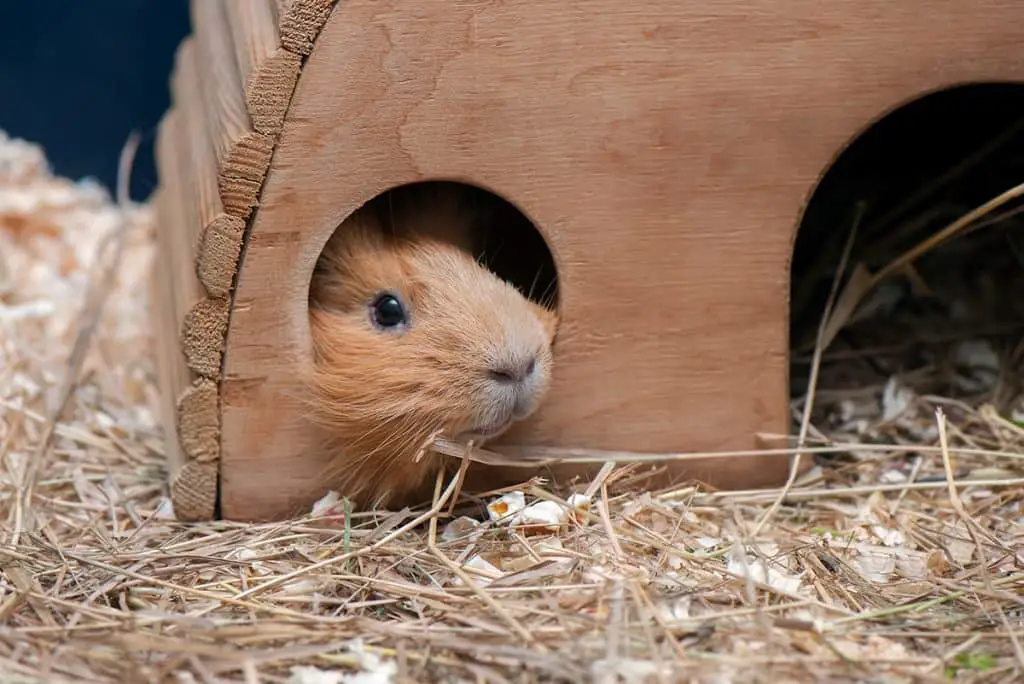
Is it OK to have just one guinea pig?
In the same way you can’t eat just one potato chip, you can’t adopt just one guinea pig. It isn’t healthy for them to be alone they need a companion of their own species they can “talk,” play, and cuddle with. Companionship is so vital to their well-being that Switzerland has made it illegal to keep only one.
Guinea pigs, known for their adorable appearance and charming personalities, are popular pets around the world. However, a common question that arises among prospective guinea pig owners is whether it’s acceptable to have just one guinea pig or if they should always be kept in pairs or groups. The answer to this question isn’t a simple yes or no, as it depends on various factors, including the guinea pig’s individual temperament, the owner’s ability to provide companionship and social interaction, and the circumstances of the pet’s living environment.
Guinea pigs are social animals that thrive on companionship. They are known to form strong bonds with their cage mates, which can enhance their overall well-being and happiness. Keeping multiple guinea pigs together can provide them with opportunities for play, grooming, and mutual comfort. When guinea pigs have companions, they often exhibit more natural behaviors, such as vocalizations, popcorning (joyful jumps), and social grooming. These interactions contribute to a happier and less stressed pet. In this sense, having more than one guinea pig is often recommended, and it can lead to a more fulfilling and enriching pet ownership experience.
Each has its unique personality and temperament. Some guinea pigs may be more introverted and content with solitude, while others thrive on social interaction. If you have a guinea pig that seems perfectly happy and healthy on its own, it may not necessarily need a companion. The key is to observe your guinea pig’s behavior closely. Signs of contentment include regular eating, drinking, and playing, as well as a lack of stress-related behaviors like excessive hiding or aggression. If your single guinea pig exhibits signs of loneliness or boredom, it may be time to consider introducing a compatible cage mate.
Can a guinea pig be happy alone?
Guinea pigs and their need for companionship is a little more complicated than just a yes or no answer! Guinea pigs are herd animals, and in the wild they would live in groups of ten or more. Even domesticated guinea pigs thrive and live happier lives when they have piggy friends to keep them company.
Guinea pigs are renowned for their social nature and affectionate personalities, often thriving in the company of their own kind. These small rodents, native to the Andes region of South America, are known to form strong bonds with their cage mates, engaging in grooming, playful activities, and vocalizations that resemble purring when content. However, the question of whether a guinea pig can be happy alone is a matter of debate among pet owners and experts.
The Social Nature of Guinea Pigs
Guinea pigs are inherently social creatures, and in their natural habitat, they live in groups or herds. This social structure helps provide them with security, companionship, and opportunities for mental stimulation. When kept in pairs or small groups, guinea pigs tend to exhibit more vibrant and active behaviors, which are indicative of their well-being. They communicate with each other through a variety of sounds and body language, offering each other comfort and a sense of belonging.
The Debate Over Solitary Guinea Pigs
While guinea pigs are naturally social, there are situations where they may need to live alone. Some guinea pigs may display aggressive or territorial behaviors when housed together, leading to stress and potential injury. In such cases, separating them may be necessary for their safety. Additionally, some individuals may experience health issues or require specialized care that makes solitary housing a more suitable option.
However, it’s crucial to understand that guinea pigs are generally happier and healthier when they have companions. The companionship of another guinea pig can prevent loneliness and provide essential mental stimulation. When considering keeping a guinea pig alone, it’s essential to compensate for the lack of a cage mate by offering ample human interaction, playtime, and toys to keep them engaged. Regular handling, petting, and talking to your guinea pig can help mitigate their potential loneliness.
How long can guinea pigs be left alone?
Guinea pigs do well on their own for a day or two, provided that: they won’t run out of hay. they won’t run out of water. they are an established group (lower risk of fights)
Guinea pigs are adorable and sociable creatures that thrive on companionship and attention. When considering how long you can leave a guinea pig alone, it’s crucial to keep their well-being and happiness in mind. In general, guinea pigs should not be left alone for extended periods, as they require daily care, social interaction, and monitoring to ensure their health and happiness.
First, guinea pigs are highly social animals that form strong bonds with their owners and cage mates. Leaving them alone for extended periods can lead to loneliness and stress, which can have detrimental effects on their mental and physical health. Ideally, guinea pigs should not be left alone for more than a few hours at a time. They thrive in the company of their fellow guinea pigs, and if you have a single guinea pig, it’s even more critical to spend quality time with them every day to fulfill their need for interaction. Consider adopting a pair of guinea pigs to provide them with companionship when you’re not around.
Secondly, guinea pigs have specific dietary and hygiene needs that require daily attention. They should have access to fresh hay, clean water, and a balanced diet of pellets and fresh vegetables. Neglecting these requirements, even for a short period, can lead to health issues. Guinea pigs are known for their coprophagy behavior, where they consume their soft feces to extract additional nutrients. This is a normal part of their digestive process, but it underscores the importance of maintaining a clean living environment. Soiled bedding and dirty cages can lead to infections and discomfort for your pets, which is why daily cleaning and maintenance are essential.
Finally, guinea pigs are vulnerable to various health problems, and their condition can deteriorate rapidly if left unattended. They require regular monitoring for signs of illness, injury, or discomfort. These small mammals can hide their symptoms well, so daily check-ups and interaction allow you to notice any changes in behavior or appearance promptly. By being present daily, you can address any health concerns promptly and ensure that your guinea pigs receive the necessary medical attention if needed.
Do guinea pigs like the dark?
They could be up at two in the morning running around with each other, or asleep at eight in the morning and up again an hour later. It’s safe to say that guinea pigs enjoy the dark at least, but we’d even go as far as to say they prefer the dark!
Guinea pigs, like most animals, have a natural circadian rhythm that dictates their activity patterns. In general, guinea pigs are diurnal creatures, meaning they are most active during the day and tend to be more restful at night. This daytime activity aligns with their natural habitat, as guinea pigs are native to South America, where they forage for food and interact with their surroundings in the daylight hours. However, the question of whether guinea pigs can see in the dark requires a closer look at their unique physiology.
Guinea pigs possess a limited ability to see in low light conditions, but their night vision is far from optimal. Their eyes are adapted for daylight vision, and they have a relatively small number of rod cells in their retinas, which are responsible for low-light vision. This means that in the dark, guinea pigs rely more on their other senses, particularly their acute sense of hearing and whiskers (vibrissae) for navigation and detection of potential threats or food sources. While they may be able to perceive some shapes and movement in dim light, guinea pigs are far less proficient in the dark compared to nocturnal animals like owls or cats.
To enhance your guinea pig’s well-being and comfort, it’s essential to provide them with a consistent day-night cycle. Guinea pigs need a minimum of 12 hours of light each day to maintain their diurnal nature. Artificial lighting can help regulate their internal body clock, but avoid subjecting them to excessive or sudden changes in lighting conditions, as this can stress them out. Additionally, always ensure they have a safe and comfortable enclosure where they can retreat to during the nighttime hours.
Do guinea pigs get bored in their cage?
As pets, guinea pigs spend their days in a hutch, with limited space and not very much to explore. So it is little wonder they are prone to boredom, depression and obesity.
Guinea pigs are social and intelligent animals that thrive on interaction and mental stimulation. While a cage provides a safe and comfortable environment for them, it’s essential to consider their potential for boredom when confined to such a space. Guinea pigs can indeed get bored in their cage, and this can lead to various health and behavioral issues if not addressed.
Firstly, guinea pigs are highly social creatures and enjoy the company of their fellow piggies. When kept alone, they can experience loneliness and boredom, which may manifest as lethargy or even depression. Providing them with a companion or two can significantly reduce their chances of getting bored. However, ensure that the cage is spacious enough to accommodate all guinea pigs comfortably.
Secondly, guinea pigs are inquisitive animals that need mental stimulation to stay happy and healthy. A barren cage with only food, water, and bedding can quickly become monotonous for them. To prevent boredom, it’s crucial to enrich their environment with various toys, tunnels, and hideouts. Natural materials like hay and wooden chew toys can also keep them engaged and prevent them from becoming restless.
Lastly, daily interaction and playtime outside of the cage are essential for guinea pigs. They enjoy exploring new surroundings, nibbling on fresh grass, and interacting with their human caregivers. Providing supervised out-of-cage time allows them to exercise and satisfy their curiosity. This not only prevents boredom but also strengthens the bond between the guinea pigs and their owners.
What do guinea pigs enjoy the most?
One of your guinea pig’s favorite things to do is chew! They like to eat and nibble on things to sharpen their teeth. These chew ball treats not only taste delicious and stimulate their senses but are also safe to consume!
Guinea pigs are delightful and sociable little creatures that have captured the hearts of pet enthusiasts around the world. While these small rodents may not have extravagant tastes, there are several things that guinea pigs enjoy the most to lead happy and healthy lives.
First, guinea pigs are true herbivores, and their favorite indulgence is fresh, high-quality hay. Timothy hay, in particular, is a staple in their diet, providing essential fiber to maintain digestive health and keep their constantly growing teeth in check. Guinea pigs enjoy munching on hay throughout the day, and it also helps to prevent boredom. In addition to Timothy hay, they relish a variety of other hays like orchard grass and meadow hay. Providing a constant supply of fresh hay is essential for the well-being of these adorable rodents.
Another beloved treat for guinea pigs is fresh vegetables and fruits. They savor a wide array of produce, including leafy greens like lettuce, kale, and spinach, as well as crunchy favorites like bell peppers and cucumbers. That moderation is key when offering fruits due to their sugar content. Small portions of fruits like apples, strawberries, or blueberries can be a delightful occasional treat. Nonetheless, guinea pig owners should always be cautious to avoid foods that are toxic to them, such as onions, garlic, and certain types of plants.
Finally, guinea pigs are social animals that thrive on companionship and interaction with their human caregivers. They enjoy spending time outside their cages to explore safe, enclosed play areas and interact with their owners. Gentle petting and talking to your guinea pig can create a strong bond of trust and affection. These curious creatures also love toys and tunnels that stimulate their mental and physical activity. Providing them with a stimulating environment and opportunities for play and interaction can greatly enrich their lives.
Can guinea pigs stay in a cage all day?
Guinea pigs need appropriate room to roam, with separate spaces for a nest, bathroom area and food and water. No animal is meant to live in a cage all the time, so make sure to provide your pig with time outside their enclosures at least once a day to stretch their legs, explore and exercise.
Guinea pigs are social and active creatures that thrive on interaction and exercise. While they do spend a significant portion of their day resting, keeping them confined to a cage all day is not ideal for their physical and mental well-being. Guinea pigs require space to move around, explore, and engage in natural behaviors.
Guinea pigs are known to cover considerable distances in search of food and shelter. In captivity, a small cage restricts their ability to roam and explore, which can lead to health problems and boredom. To ensure the well-being of your guinea pig, it’s important to provide them with a spacious enclosure that allows for adequate exercise. A cage should be a safe home base, but it should not be their only living space.
Guinea pigs are highly social animals that benefit from companionship. Keeping a single guinea pig in a cage all day can lead to loneliness and depression. To house them with at least one or more cage mates of the same sex to fulfill their need for social interaction. When guinea pigs have companions, they engage in grooming, playing, and communication, which helps keep them mentally stimulated and emotionally content.
Do guinea pigs show love?
They use all sorts of sounds and actions to convey how they feel. Once your guinea pig has got more comfortable with taking food from you, you might start to be treated to further signs of trust and affection. For example, they might run up to greet you or come towards you as their name is called.
Guinea pigs are renowned for their charming personalities and affectionate behaviors, leading many pet owners to wonder if these adorable rodents are capable of feeling and expressing love. While guinea pigs may not experience love in the same way humans do, they do exhibit a range of affectionate behaviors that demonstrate their bond with their owners and cage mates.
One of the most prominent signs of a guinea pig’s affection is their gentle vocalizations and purring. When a guinea pig is content and relaxed, it will often emit a soft, melodic purring sound, which is often referred to as “wheeking.” This endearing noise is a clear indication that your guinea pig is happy and comfortable in your presence. Guinea pigs will often engage in social grooming, where they nibble and clean each other’s fur. This grooming behavior is not only a way to maintain hygiene but also a form of social bonding, demonstrating their attachment to their cage mates.
Guinea pigs are also known for their desire for physical contact and interaction with their owners. They enjoy being petted, cuddled, and held, and they will often seek out their human companions for attention. When you spend time with your guinea pig, you’ll notice them nuzzling your hand, nibbling your fingers gently, or even climbing onto your lap. These actions may not signify love in the human sense, but they are clear indicators of trust and affection.
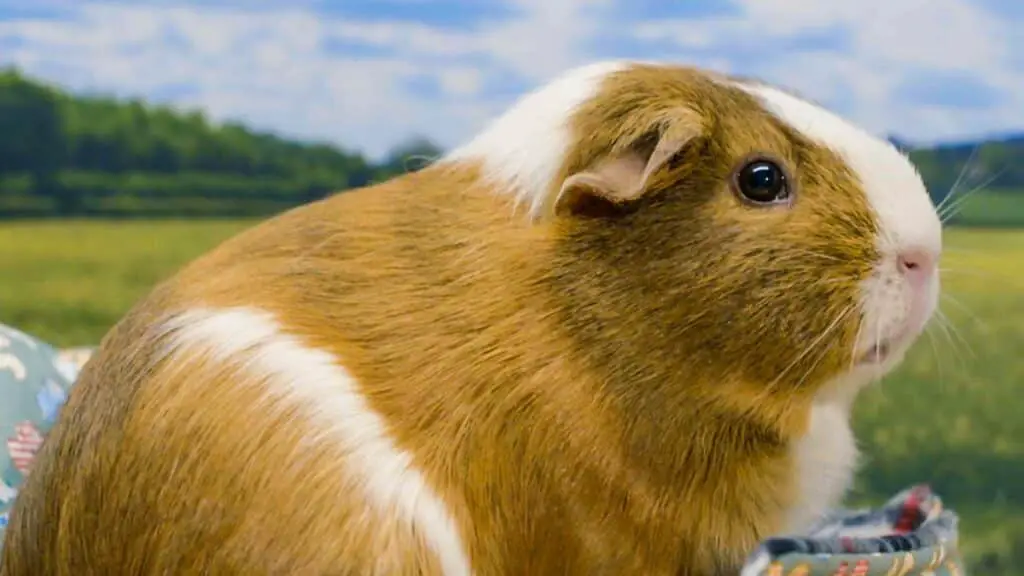
Conclusion
Guinea pigs are social creatures that thrive in the company of their own kind. While they may not experience loneliness in the same way humans do, they do require companionship to lead healthy and happy lives. A solitary guinea pig is more likely to become stressed, anxious, and depressed, which can lead to a decline in their overall well-being.
To ensure the well-being of your guinea pig, it is crucial to provide them with the companionship of at least one other guinea pig. This not only helps prevent loneliness but also allows them to engage in natural social behaviors, such as grooming and vocalizing, which are essential for their emotional health. Spending quality time with your guinea pigs, providing them with a stimulating environment, and offering plenty of love and attention can further enhance their happiness and prevent loneliness.
Guinea pigs are not solitary animals and can indeed experience loneliness when kept alone. To promote their overall welfare, it is essential to keep them in pairs or small groups, allowing them to interact and form social bonds with their fellow guinea pigs. By meeting their social needs, you can ensure that your guinea pigs lead content and fulfilling lives as cherished members of your family.

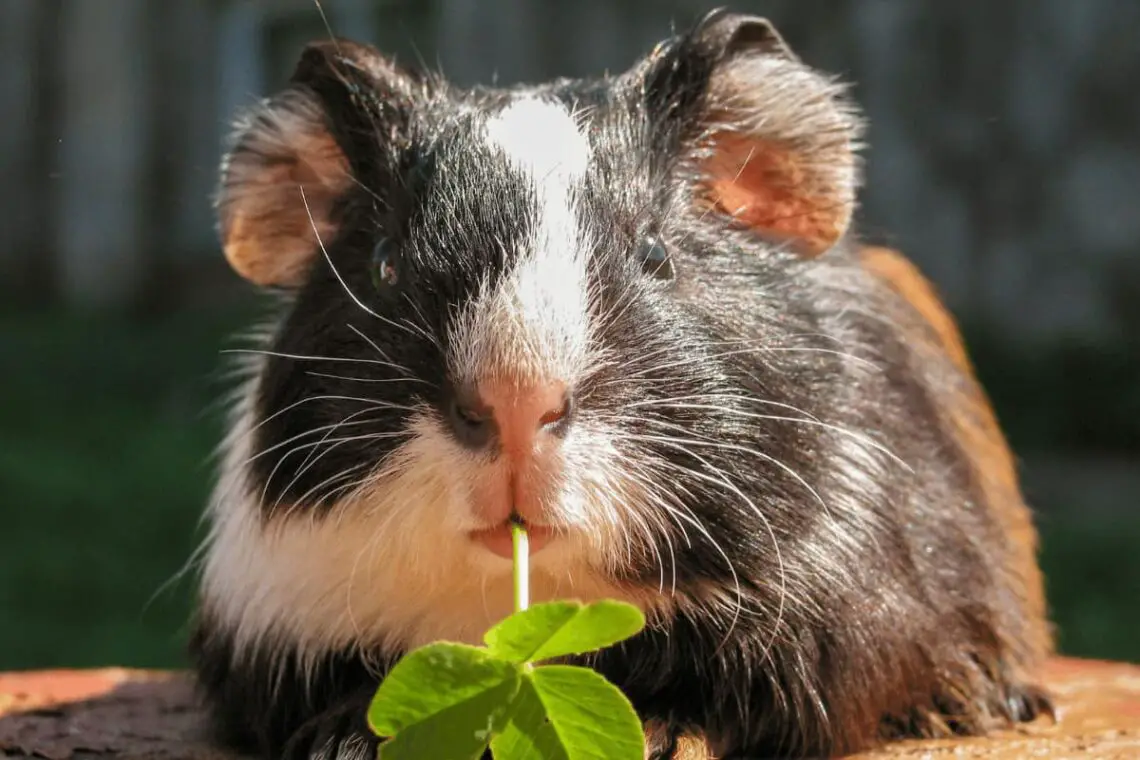
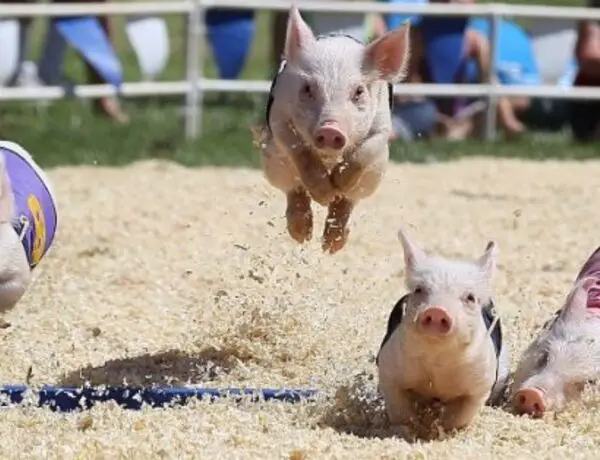
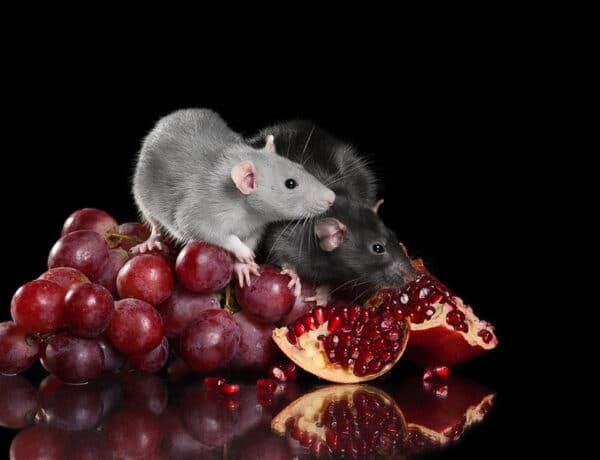
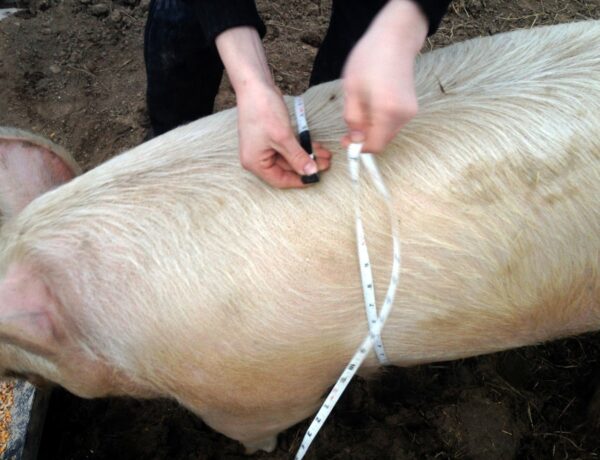
No Comments